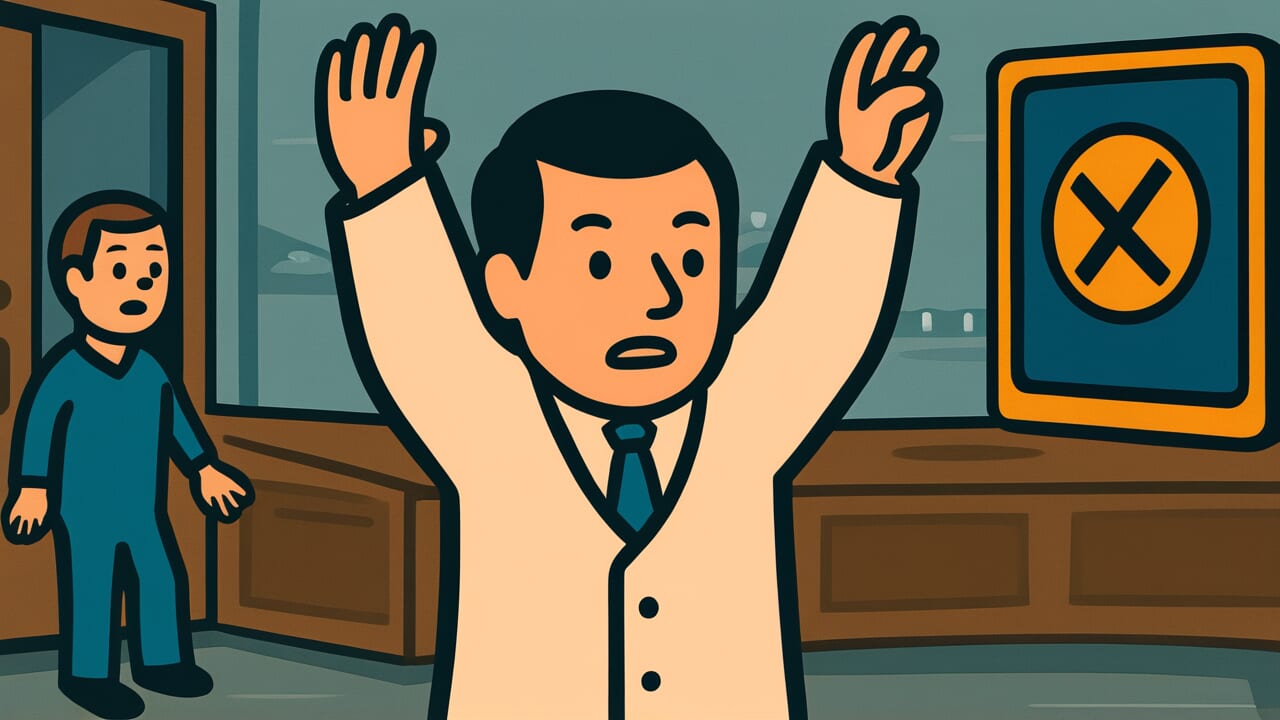How to Read “Even when doing evil, one doesn’t approach punishment”
Aku wo nasu mo kei ni chikadzuku nashi
Meaning of “Even when doing evil, one doesn’t approach punishment”
This proverb teaches us that nobody is perfect, but there’s still a line we must never cross. Everyone makes small mistakes sometimes.
We forget promises, tell little lies, or say mean things about others. These everyday mistakes are part of being human.
However, this saying warns us to never commit serious crimes that break the law. Those are the big wrongs that lead to real punishment.
People use this proverb to teach young people or remind themselves to be careful. It shows a realistic view of right and wrong.
You can’t be perfect, but you must never break society’s rules in serious ways. There’s a clear line between small mistakes and big crimes.
The proverb teaches that staying on the right side of that line is the basic ethics everyone should follow.
Origin and Etymology
Nobody knows exactly where this proverb first appeared in writing. But it likely came from ancient Chinese philosophy, especially Confucianism.
The word “punishment” in the saying refers to legal consequences. This shows the proverb is about the line between law and morals.
In ancient times, people clearly separated two things: crimes punished by law and actions that were just morally wrong.
Serious crimes got legal punishment. But small daily mistakes and moral flaws didn’t always lead to legal consequences.
Look at how the proverb is built. It puts distance between “doing evil” and “approaching punishment.”
This means not all bad actions deserve legal punishment. But that’s exactly why the warning “one doesn’t approach punishment” was needed.
Humans aren’t perfect and make small mistakes. But we must absolutely avoid serious crimes that break the law.
This realistic understanding of human nature, combined with a strict boundary, makes this proverb special. During Japan’s Edo period, this practical moral view was important in teaching common people.
Usage Examples
- I almost shoplifted on impulse, but I remembered “Even when doing evil, one doesn’t approach punishment” and stopped myself
- I made some mistakes when I was young, but I lived by “Even when doing evil, one doesn’t approach punishment,” which is why I’m okay today
Universal Wisdom
This proverb teaches universal wisdom. It accepts that humans aren’t perfect, but we must still follow basic ethics to keep society working.
Nobody is perfect. We get emotional, give in to temptation, and make bad choices sometimes.
If we said “one mistake makes you a bad person,” nobody could survive. Our ancestors understood this well.
That’s why they accepted small mistakes as part of being human.
But they also drew a clear line that must never be crossed. That’s the “one doesn’t approach punishment” part.
Serious crimes that break the law don’t just destroy your own life. They deeply hurt others and damage society’s order.
These actions have consequences you can never undo.
This double perspective shows deep understanding of human nature. It balances being forgiving with being strict.
It separates what’s acceptable from what’s absolutely forbidden. People should aim for perfection while staying realistic about themselves.
Our ancestors perfectly captured in words how humans struggle between ideals and reality.
When AI Hears This
When some people do bad things without getting punished, game theory explains it as a “number of games” problem.
There’s a famous thought experiment called the Prisoner’s Dilemma. Two people both benefit if they cooperate.
But if you betray the other person, you benefit even more. However, if both betray each other, both lose.
Mathematicians discovered something interesting. The best strategy is completely opposite depending on whether you play once or many times.
If you only play once, betrayal makes sense. In other words, doing something bad and escaping is beneficial.
This is exactly the “Even when doing evil, one doesn’t approach punishment” situation. Scammers who do business once in an unfamiliar place easily escape punishment.
But when you deal with the same person many times, things change. Computer simulations found the most successful strategy was “tit-for-tat.”
Start by cooperating. If the other person betrays you, betray them back next time.
This simple rule defeated many complex strategies one after another.
So bad actions go unpunished when society becomes a one-time game. In anonymous situations where people never meet again, betrayal spreads.
But in small communities where reputation systems work, cooperation happens naturally even without laws. The “possibility of meeting again” is actually a bigger deterrent than punishment.
Lessons for Today
This proverb teaches modern people that you don’t need to be too hard on yourself.
Do you almost write hurtful words on social media? Make small mistakes at work? Make choices you regret in relationships?
Are you blaming yourself too much for these everyday failures?
Instead of exhausting yourself trying to be perfect, it’s important to have a clear line of “I will absolutely never do this.”
Actions that betray others’ trust, illegal wrongdoing, lies you can’t take back. Just avoid these serious mistakes.
You can accept all other small failures as lessons for growth.
Modern society records everything. Even small mistakes can spread everywhere.
That’s why you need the ability to see what boundaries really matter. Don’t let daily small regrets consume your mind.
Just absolutely avoid the big mistakes that would ruin your life. This balanced way of living protects your heart and gives you strength to walk steadily through a long life.



Comments